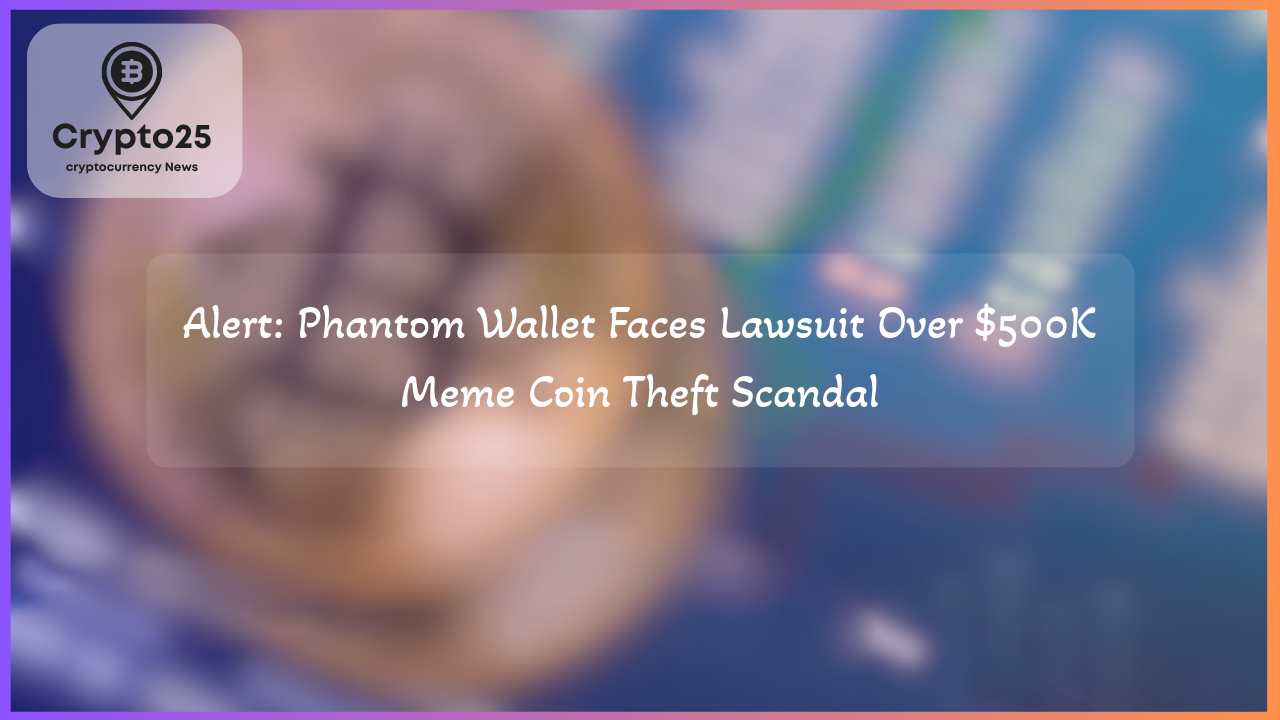
A legal battle has cast a spotlight on Phantom Technologies, the creator of the Phantom wallet, a popular application among Solana blockchain users. Allegations include Phantom’s purported design flaws, which reportedly left users vulnerable to significant cryptocurrency losses. This case underscores the challenges facing the crypto industry as digital assets and security measures evolve in tandem.
## Phantom Wallet Lawsuit Highlights Alleged Security Gaps
Phantom Technologies, a key player in the cryptocurrency space, finds itself at the center of a lawsuit alleging inadequate security protocols in its crypto wallet. The wallet, celebrated for its utility on the Solana blockchain, is being accused of exposing users to cyber threats, leading to the loss of over $500,000 worth of Wiener Doge (WIENER) tokens. According to the legal filing in the Southern District of New York on April 14, the wallet’s architecture allegedly stores private keys in unencrypted browser memory, making it susceptible to malware attacks.
The lawsuit further claims that a cybercriminal gained unrestricted access to the plaintiff’s Phantom wallets, bypassing security features like multi-factor authentication. A key accusation is that Phantom’s promise of “best-in-class” security failed to match its design, placing its 10 million active users at risk. This has sparked significant global discussion about noncustodial wallets and user responsibility within the crypto ecosystem.
## Security and Asset Losses: Issues Faced by Phantom Wallet Users
The legal complaint details shocking revelations regarding stolen assets, including the extraction of private keys through malicious software. Murphy, one of the plaintiffs and a leading voice in the lawsuit, alleges that Phantom’s response to his theft report displayed a lack of accountability. The company purportedly relied on its noncustodial model to absolve itself, stating users are solely responsible for the security of their wallets.
The lawsuit also criticizes Phantom for lacking crucial safeguards like transaction velocity checks and geolocation tracking—features present in more centralized solutions like Coinbase. Additionally, it alleges a hacker utilized Phantom’s built-in “Swapper” feature to liquidate $500,000 worth of WIENER tokens for a mere $37,537 in Solana (SOL). This incident reportedly caused the entire Wiener Doge project to plummet in value, once boasting a $3.1 million market capitalization at its peak. Such vulnerabilities intensify concerns about Phantom’s role in protecting assets on a global scale.
| Title | Details |
|---|---|
| Market Cap | $1.2 Trillion |
| Peak Value of Wiener Doge | $3.1 Million |
| Active Phantom Wallet Users | 10 Million |
## Crypto Regulation and Deceptive Practices Allegations
The lawsuit against Phantom takes aim at its alleged partnership with OKX, a major crypto exchange. The complaint states that Phantom failed to disclose its integration with OKX, an entity that recently pleaded guilty to federal money laundering charges for enabling over $5 billion in illicit transactions. This raises questions about transparency in the broader crypto industry, particularly regarding platforms that market themselves as decentralized while benefitting from centralized partnerships.
Murphy and his co-plaintiffs have also accused Phantom of violating the Commodity Exchange Act by functioning as an unregistered trading platform. They argue that Phantom leveraged “deceptive” decentralization claims to evade regulatory scrutiny. In total, the plaintiffs are seeking a minimum of $3.1 million in damages. These accusations pose larger questions for the crypto world about balancing innovation with compliance and whether adequate regulation exists to protect users from fraud or theft.
This high-profile lawsuit, coupled with evolving global cryptocurrency regulations, emphasizes an important consideration for both developers and investors: security cannot be compromised in the decentralized finance (DeFi) space. Phantom’s silence on the issue only heightens the scrutiny, leaving many to wonder how companies in the crypto space can balance transparency, security, and user experience to ensure trust in the marketplace.
As the case develops, the entire blockchain community will be closely monitoring the potential ramifications for wallets and exchanges alike, as this scenario could reshape practices across the industry.
